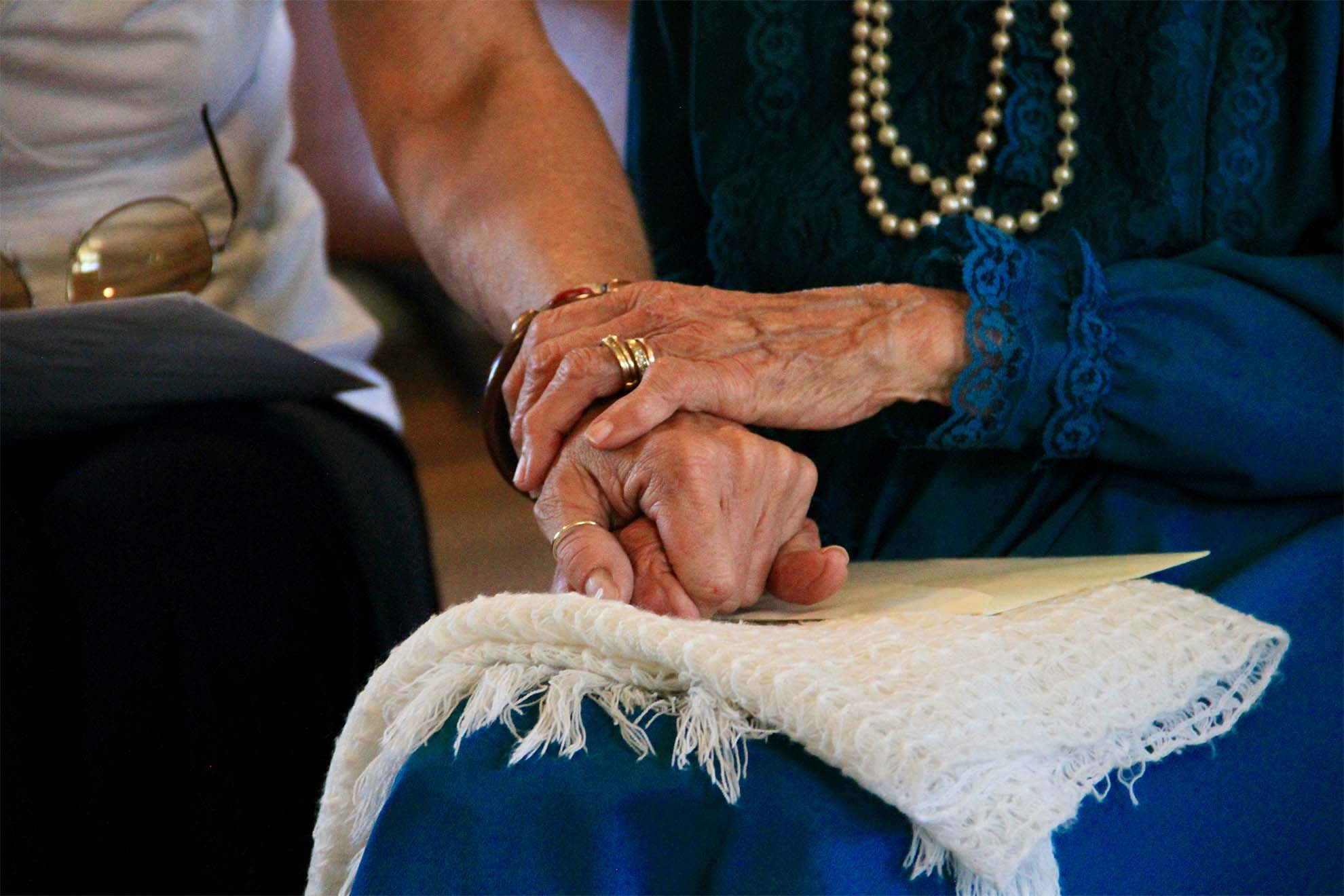The team at Struan Lodge Care Home is proud to provide Dementia Care in Edinburgh as well as a variety of other elderly care services including Nursing Care, Residential Care, and Respite Care. Our dementia care has been designed to support people living with dementia and Alzheimer’s and is provided by a highly-skilled team of care professionals, in a welcoming, safe and homely environment.
What is Dementia Care and Who is it For?
When someone receives a diagnosis of dementia or Alzheimer’s disease, there are a number of ways and settings in which they can receive dementia care. Those living with this diagnosis are affected in a variety of ways, meaning where and how dementia care is given depends entirely on the individual. As a progressive condition, symptoms may get worse as time goes on and therefore care is given depending on the individual’s level of dementia. Dementia care can be provided as in-home care in the individual’s own home, or in a specialist setting like a nursing home or residential care home.
Determining the level of care required by yourself or a loved one and where best to receive it can be really challenging. Low-level dementia and in its early stages can show symptoms such as difficulty in carrying out daily routines, misplacing items, and memory loss. At a more advanced stage, those with dementia may eventually face challenges with personal care, household management, preparing meals, and remembering to attend healthcare appointments.
These symptoms may be an indication that around-the-clock support from professionals is needed. Dementia care homes offer teams of carers and in some cases nurses who are available 24/7 to provide care in a safe and supportive setting. As well as having access to these care services, individuals can also benefit from using onsite facilities, taking part in activities, meeting and living with like-minded people, and having meals and housekeeping all taken care of.


Dementia Care at Struan Lodge Care Home
Our care home in Edinburgh has been thoughtfully designed and is well-equipped to offer dementia support to people living with dementia and Alzheimer’s disease. Our dementia care is given by a team of nurses and care professionals who have the specialist skills and knowledge to provide high-quality, comprehensive care.
The team at Struan Lodge Care Home works closely with residents’ loved ones, supporting them too as well as ensuring consistent communication. Family members are welcome to our home at any time and we are happy for them to take part in activities as well as general life at our care home. Through a combination of around-the-clock assistance, personalised care plans, daily activities, and dementia therapies, residents with dementia or Alzheimer’s are supported to live a happy and active life with comfort and familiarity.


Our Care Home in Edinburgh
At Struan Lodge Care Home, we believe in holistic support with an active philosophy of first-class care. Whether it’s our carers, catering team, or activity coordinators, we all go to great lengths to ensure residents are well-cared for, whilst receiving opportunities to try new things, continue with hobbies, and make the most out of living at our care home in Edinburgh.
Located in the desirable residential area of Murrayfield, near to Carrick Knowe golf course, Struan Lodge Care Home benefits from a range of amenities in the immediate area as well as nearby neighbourhoods, Balgreen and Roseburn. Just a 15-minute drive away, the impressive capital city of Scotland can also be found. Our location lends itself nicely to residents and their families who like to fill their days with activities and excursions. Care homes and nursing homes in Edinburgh have multiple outdoor spaces to take advantage of, which can be particularly beneficial for those with dementia, as sunlight and fresh air can help to encourage light activity and reduce stress, and a change of scenery can help with stimulation. Edinburgh Zoo is located just a 7-minute walk from our care home and is a great family day out that offers the opportunity to admire wildlife and enjoy a picnic.
Galleries and historic attractions are wonderful for those living with dementia, as they can inspire creativity and imagination, evoke memories, encourage learning and boost wellbeing. There are some really interesting attractions in the local community worth visiting, such as the Scottish National Gallery of Modern Art and Edinburgh Castle. Both are immersive experiences that allow people to discover more of Scottish culture and history. People living with dementia in Scotland can also benefit from a local initiative; Alzheimer Scotland. The organisation ensures available support for those living with dementia and their families, providing them with a wide range of community activities such as singing groups, allotment groups, and dementia cafés, with many taking place in Edinburgh. No matter what our resident’s interests or hobbies are, there is plenty of things to see and do in and around our care home.

Contact Us
Struan Lodge Care Home
54 Balgreen Avenue
Edinburgh
EH12 5SU
Enquiry form
Map not visible.